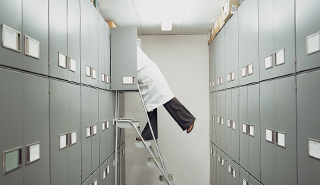Research Collaboration Brings Solutions For Biodiversity Loss
A new research collaboration between the University of Reading and Kew Gardens aims to develop nature-based solutions to tackle global issues of biodiversity loss and climate change.
The collaboration was launched with an event last week, bringing together researchers and professional staff from the two organisations to discuss potential opportunities for research and doctoral training across a wide range of disciplines.
The event included talks from colleagues across both organisations on the aims of the partnership and their research interests, and offered attendees the opportunity to meet and network with potential research collaborators.
Professor Tom Oliver, Research Dean for Environment at the University of Reading, said: “Collaboration with Kew provides a great opportunity to develop our collections-based research at Reading and form new relationships across disciplines. For example, we hope this developing partnership will enable new research to provide nature-based solutions for the biodiversity and climate crises.”
Alongside the recently announced planned move of 28 million specimens from the Natural History Museum to the Thames Valley Science Park, the collaboration will increase the University’s capacity for collections-based research.
Kew is the largest organisation in the UK focused on botany and microbiology, and houses over 8.5 million items. Researchers from both organisations are enthusiastic about utilising the full potential of the collections and facilities at both Kew and the University.
As well as bringing together research from across scientific disciplines, the collaboration will also focus on embedding research from the arts and humanities into solutions.
Paul Kersey, Deputy Director of Science (Research) at Kew, said: “It’s very exciting to be bringing our two organisations together. This partnership will enable us to find complementary expertise that will allow us to put a complete picture together of what’s happened to our world in the past, and what’s going to happen to it in the future.”
Colleagues from the University and Kew will now work together to develop the ideas discussed at the event.

